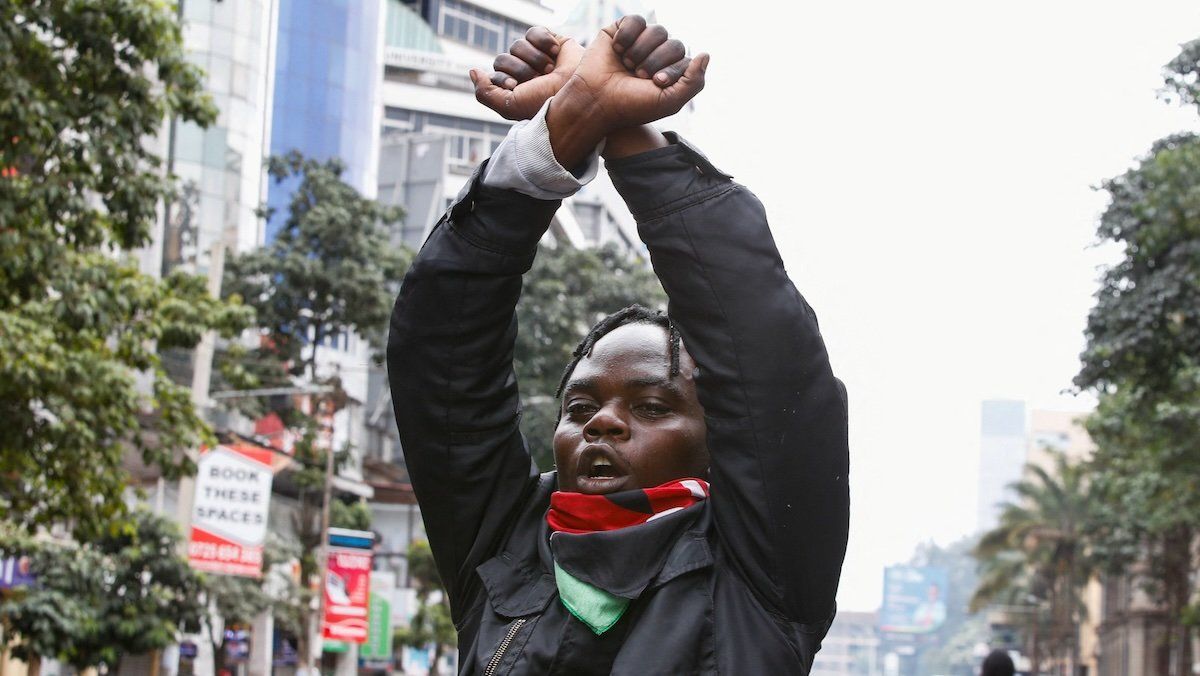Kenyan President William Ruto on Wednesday caved to the demands of protesters and scrapped a controversial finance bill. The legislation, which would’ve raised taxes on a population already struggling with high living costs, sparked mass protests that led to a deadly police response this week.
“I will not sign the 2024 finance bill,” Ruto said Wednesday amid widespread outrage over the deaths. “The people have spoken.”
What’s next? The move will appease Western donors, older voters, and certain lobbying groups who backed the young protesters but also want to see calm restored, says Imani Jaoko, a Nairobi-based analyst for Eurasia Group.
But the young voters who spearheaded the demonstrations “are not going to relent,” adds Jaoko, because people have died, and they see this U-turn as coming too late.
Ruto initially pledged a strong response to the protests, which also called for his resignation. Though he’s done a 180, it actually “emboldens” the demonstrators, says Jaoko, who are now aiming not only for the finance bill but “the administration’s failures in whole.”
Still, older voters, among other groups, will probably push the young protesters to “take the ‘win,’” adds Jaoko, noting that it’s unlikely the calls for Ruto to resign will reach a level where he feels compelled to step aside.
